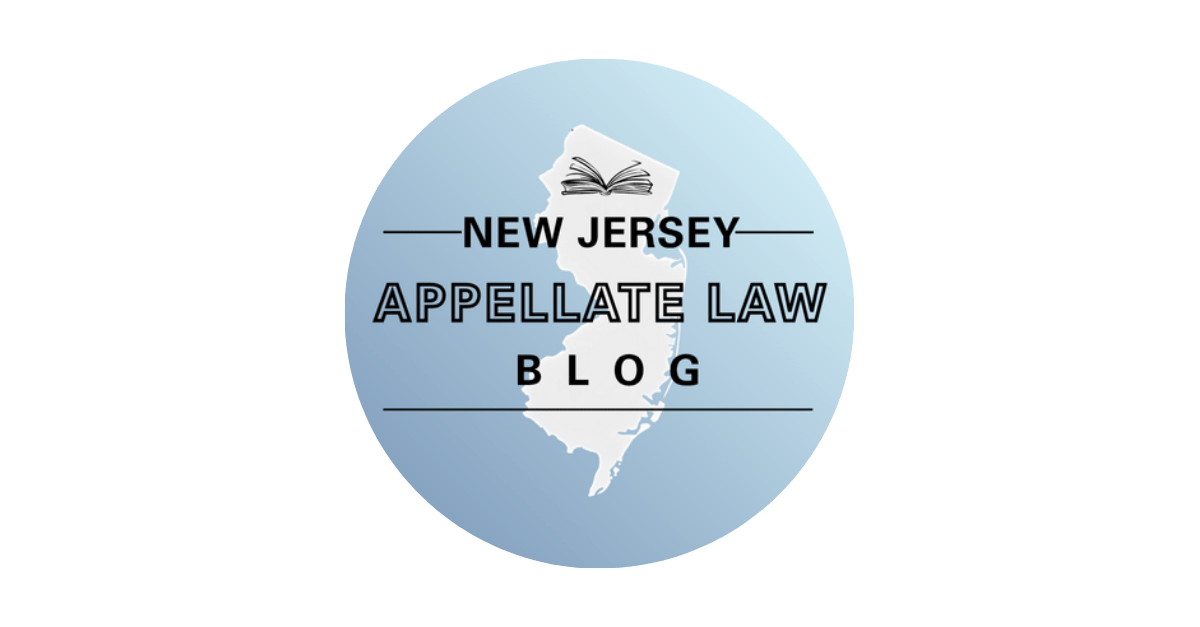Due to a combination of factors, there have been no posts on this blog in the first half of August. This post will begin the catch-up process by summarizing the many decisions in criminal appeals that the Supreme Court has issued so far this month.
State v. Burney, 255 N.J. 1 (2023). Defendant in this case was convicted of robbery, assault, and other charges. He appealed, and the case reached the Supreme Court. By a 5-2 vote, the Court reversed the convictions. The majority opinion, written by Justice Pierre-Louis, held that it was “cumulative error for the trial court to admit two pieces of evidence: expert testimony that defendant’s cell phone was likely near a crime scene based on a ‘rule of thumb’ approximation for cell tower ranges in the area, and a first-time in-court identification of defendant by a witness who had previously identified another person as the perpetrator in a photo lineup.” Joining in that opinion were Chief Justice Rabner, Justices Wainer Apter and Fasciale. Justice Solomon, with whom Justice Patterson joined, dissented.
State v. Allen, 254 N.J. 530 (2023). The Court split 4-3 in this case, in which defendant was convicted of attempted murder. The majority and dissenting opinions agreed that the Law Division had erred in permitting a detective to present lay opinion testimony in which he narrated a video recording. However, the majority found that error harmless, in light of the overall strength of the State’s case. The dissenters disagreed. Justice Patterson authored the majority opinion, which was joined by Justices Solomon and Fasciale and Judge Sabatino. Justice Pierre-Louis wrote the dissent, in which Chief Justice Rabner and Justice Wainer Apter joined.
State v. Watson, 254 N.J. 558 (2023). This was a unanimous opinion by Chief Justice Rabner. Another robbery case, this matter involved both the first-time in-court identification issue that also appeared in Burney and the narration of a video that was also present in Allen. The Court reversed the conviction and laid out practices and safeguards to govern both issues going forward.
Williams v. New Jersey State Parole Bd., 255 N.J. 36 (2023). The question in this case, as phrased by Justice Fasciale in his unanimous opinion for the Court, was “whether the New Jersey State Parole Board may impose a condition that mandates enrollment at a residential treatment program (RTP) for adult inmates who are entitled to administrative parole release under the Earn Your Way Out Act (EYWO Act), N.J.S.A. 30:4-123.55b to .55f.” Harmonizing the processes for release established by the EYWO Act and the Parole Act with N.J.S.A. 30:4-123.59, which permits the Parole Board to impose conditions for inmates released on parole under both Acts, the Court held that the Parole Board lacked authority to impose the condition at issue. That ruling reversed the decision of the Appellate Division that, like the ruling of the Parole Board, had held that the Parole Board did have authority to impose that condition.
State v. O’Donnell, 255 N.J. 60 (2023). This case is one that had gotten a lot of attention in the popular press as well as in legal circles. The issue was whether the bribery statute, N.J.S.A. 2C:27-2, applied to defendant, a candidate for Mayor of Bayonne who had allegedly accepted cash in exchange for promising to appoint as tax counsel for the city the person who gave him the money. The complication was that defendant was not an incumbent and ultimately lost the mayoral race. He argued that since he had not been elected, he could not be liable for bribery. As discussed here, the Appellate Division rejected defendant’s arguments, reversing a decision by the Law Division to dismiss the indictment. The Supreme Court affirmed in an opinion by Chief Justice Rabner. The Court held that the plain language of the bribery statute “applies to any ‘person’ who accepts an improper benefit — incumbents, candidates who win, and candidates who lose,” and that “it is no defense to a prosecution if a person ‘was not qualified to act.’”
State v. Zadroga, 255 N.J. 114 (2023). This was a double jeopardy case. The unanimous opinion of the Court, written by Justice Wainer Apter, held, based on the particular facts of the case, that there could be a retrial in certain respects.
State v. Juracan-Juracan, 255 N.J. 241 (2023). This unanimous opinion by Justice Pierre-Louis centered on “a question of first impression — whether a criminal defendant must be provided in-person interpreting services,” rather than video remote interpreting services, at his trial. “Although the COVID-19 pandemic has altered traditional courtroom dynamics, it remains crucial that the fundamental principles of fairness and a defendant’s right to fully participate at trial are preserved. We therefore hold that in a criminal jury trial, there is a presumption that foreign language interpretation services will be provided in person, which is consistent with the New Jersey Judiciary’s longstanding practice.” The Court went on to articulate factors that are to guide the decision regarding in-person vs. remote interpreting services and reversed and remanded the case for further consideration in light of those newly-announced factors.

